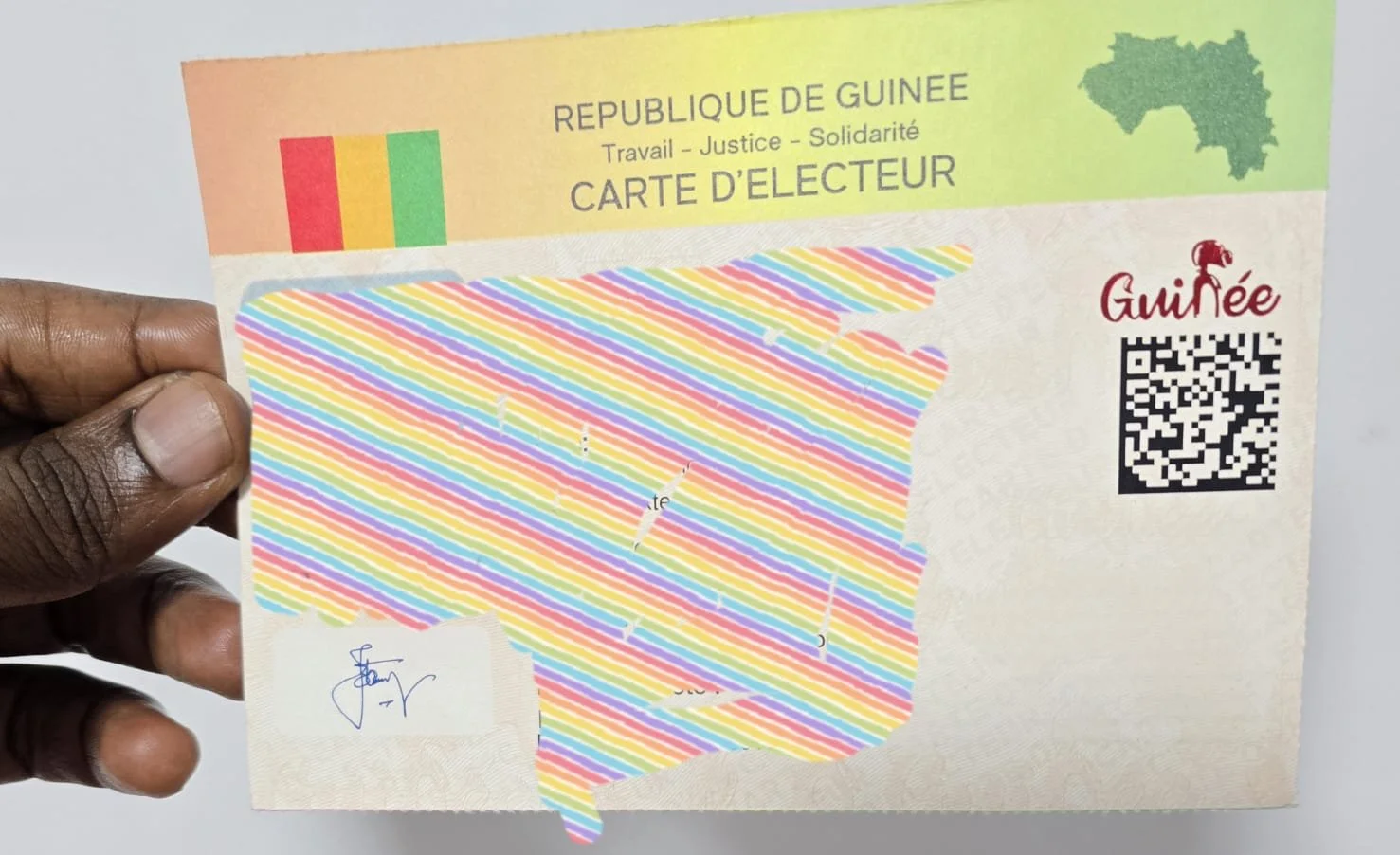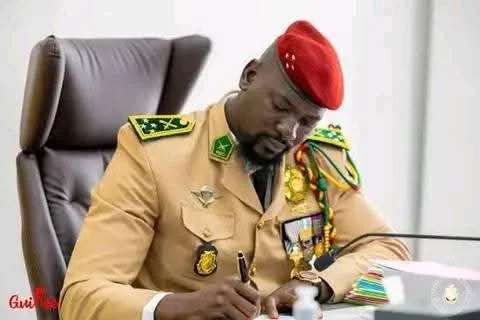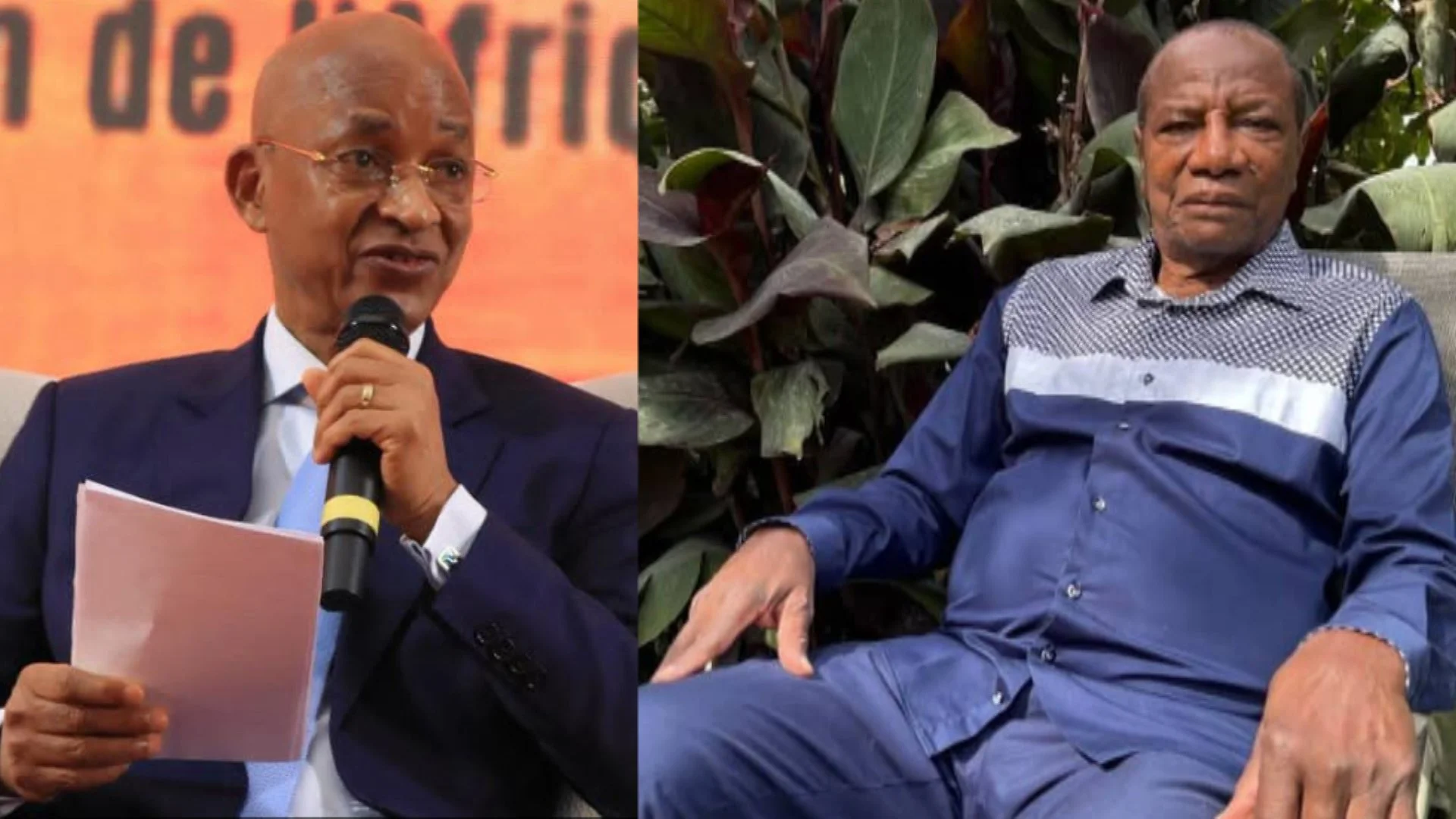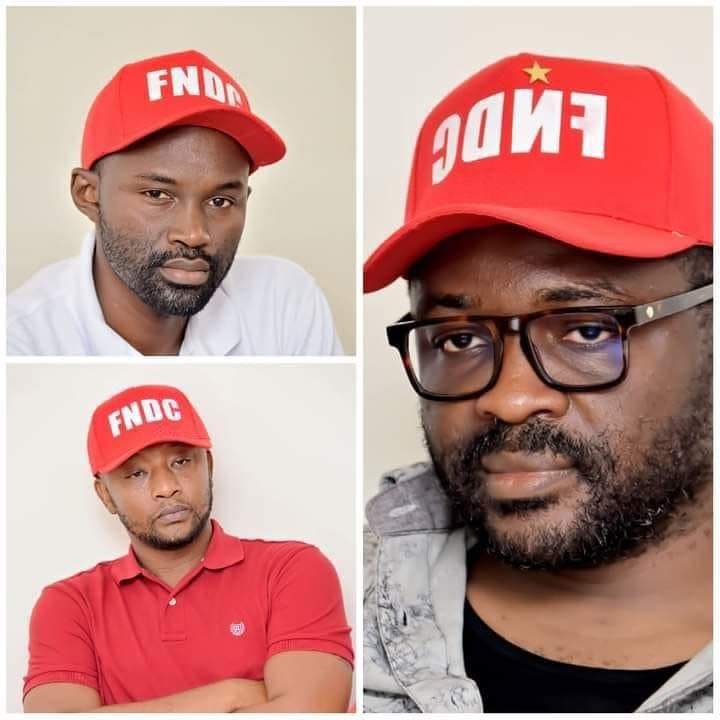A Nation Divided: The Uncertain Path to Democracy in Guinea
In less than 24 hours, Guineans at home and abroad will head to the polls for the second time in five years for another yes-or-no referendum to change the constitution, scheduled for Sunday, September 21, 2025. The nation finds itself at another critical crossroads. Presented by the military junta as a step toward democratic reform, the referendum is instead widely viewed with suspicion and has been met with significant political unrest and criticism from both domestic and international observers. The outcome of this vote will be a crucial test of the country's commitment to democratic principles, with the potential for either renewed hope or further division.
Voters ID cards for the upcoming referendum on Sunday 21, September 2025
Political Landscape in Turmoil
The political climate in Guinea has been fraught with instability since the military ousting of former President Alpha Condé in September 2021. Colonel Mamadi Doumbouya, now General, who led the coup, promised a swift transition to civilian rule, declaring that “justice” will be the way forward for the transition. He assured the nation that the transition would last no more than 34 months, with no military personnel participating in subsequent elections. However, four years later, these promises remain unfulfilled, and the political landscape is more volatile than ever.
General Mamady Doumbouya, President of the Republic of Guinea
In a controversial move, the ruling junta has banned the three major political parties—Union of Democratic Forces of Guinea (UFDG), Rally of the Guinean People (RPG), and Union of Republican Forces (UFR)—from participating in the upcoming referendum. Their leaders, including prominent figures such as Cellou Dalein Diallo, Sidya Touré, and Alpha Condé, are currently in exile, raising questions about the inclusivity and legitimacy of the political process.
Crackdown on Dissent
The political crackdown extends beyond party bans. Aliou Bah, the leader of the opposition party Movement for the Liberation and the Development of Guinea (MODEL), was arrested in December 2024 and sentenced to two years in prison for allegedly insulting the president, a charge he denies. Bah argues that his only crime is urging the junta to respect their “promises and uphold the rule of law.”
From left to right, former Prime Minister, Cellou Dalein Diallo and former President Alpha Conde
Moreover, journalist Habib Maroune Camara, a fierce critic of the junta, disappeared six months ago after allegedly being abducted by security forces. Activists Oumar Sylla, known as Foniké Mengué, and Mamadou Billo Bah have been missing for over a year, with their whereabouts still unknown. Despite bans on protests, junta supporters frequently hold rallies, while opposition demonstrations often lead to arrests or fatalities. Since the junta took power, over 50 young people have been killed by security forces, and no one has been held accountable for these actions.
Missing activists from top Mamadou Billo Bah and right Oumar Sylla (Foniké Mengué)
Economic Challenges
Recently, Guinea has been grappling with a cash crisis, as citizens struggle to withdraw their money from banks, limited to 5,000,000 Guinea Francs (approximately $400 USD). In response, last month the government printed additional currency and injected it into the central bank to stabilize the cash flow crisis; however, the impact remains to be seen.
Meanwhile, General Doumbouya has not officially announced his candidacy for the next election, but close allies, including the government’s spokesperson Ousman Goual Diallo and General Amara Camara, the second-in-command, have suggested that he could run if the new constitution is passed, as it contains no provisions against any Guinean from standing for presidential election.
Calls for Boycott
Earlier this week, the Force Vives—a coalition of major opposition parties and civil society organizations—called on Guineans to boycott the referendum and stay home. They argue that the referendum will lack transparency and is merely a mechanism for Doumbouya to extend his rule with an iron fist.
As Guinea stands at a crossroads, the upcoming referendum will be a critical test of its commitment to democratic principles. The path forward remains uncertain, with the potential for either renewed hope or further division. For the people of Guinea, the stakes have never been higher as they navigate the complex landscape of political reform and the quest for a stable, democratic future.





